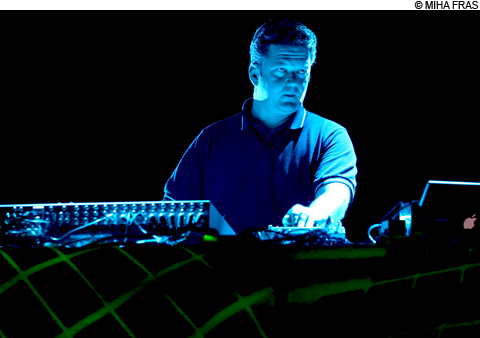
LEAF ECHO "I like the deepness and myth of forests in general but without being sentimental or a mythologist," says minimal electronic-music composer Stefan Betke.
|
As one of the pioneers of the dub and glitch sub-genres of electronic music, Stefan Betke's reputation as a producer and mastering engineer almost supersede his identity as a composer. After a four-and-a-half-year absence, the German electronic musician/producer is back with the release of two 12-inch singles Waldgeschichten and Waldgeschichten 2 (pole records), both under his lower-case pole moniker and foreshadowing a forthcoming LP of long-awaited new material.
Although he began his career with influential US indie Matador and their release of the 1, 2, and 3 trilogy in the late-'90s, Betke's global break-out came after releasing two 12-inches and an LP on Mute in 2003 as well as the critically-acclaimed Steingarten LP in 2007. The past four years have found Betke starting his own label, putting together his own mastering studio, and searching for a new musical beginning — found this time around in a modified rhythm machine from the 1970s. "This was the start, the same way as the broken filter was the start for pole back in the mid-1990s," says Betke from a hotel room in New York, referring to the broken Waldorf 4-Pole filter found in his earlier recordings (and from which his latest performing name is derived). "I like machines that surprise me."
There is no doubt that the idiosyncratic surprises evident in Betke's new material possess a highly organic vibrancy. The Waldgeschichten singles — or Forest Stories — conjure not only sharp elements such as windy branches and trickling streams, but also mysterious ones, like the haze of foggy winter mornings and the solitude of a private vista. "I like the deepness and myth of forests in general but without being sentimental or a mythologist," says Betke. "Most of the tracks I got the idea for during my forest walks."
With its ultra-resonant, chocolate-smooth, percussive bass, Waldgeschichten's "Wipfel" ("Treetop") is a daring abstraction of dub/dancehall percussion tropes. Here Betke's love of chords and more conventional song structure wins out, as melancholic, open-ended chimes wash against minor-key wah-wah synth pads. Notes bob and weave between the spaces of Betke's intricate rhythmic web.
Waldgeschichten 2 offers a view into Betke's colder and glassier side. "Aue" ("River") quickly produces a hypnotic effect on the listener with the rhythmic pinging of (what sounds like) metal hitting metal over a vast body of water. Betke's dub-inflected rhythms, distant in their even-temperedness and crackliness, gradually create the space and slack needed to bring surprises such as static raindrops, hovering spherical overtones, menacing tugboat-like hums, angular synth tweaks, and tympanic outbursts.
For Betke, minimalism comes as naturally as the patterns of ripples across the water. "I use as much as needed and leave the rest out . . . or use it for another track," he says. "It is a lot of trial and error until you find out which elements work together and which are just filling things up."
Betke's Boston-area debut as performer this Wednesday at the Goethe-Institut will be preceded Tuesday by a free lecture on mastering basics at the Berklee College of Music. "I am very much interested in a 'musical' way of mastering and not only following technical specifications," says Betke. "Sometimes it is better to do what sounds good to the track you work on, instead of doing what should be done technically."
POLE | Goethe-Institut Boston, 170 Beacon St, Boston | May 2 @ 8pm | All Ages | $15; $12 students | 617.262.6050